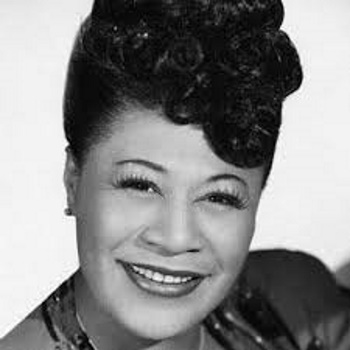
Ella Fitzgerald was an American jazz singer, sometimes referred to as the "First Lady of Song", "Queen of Jazz", and "Lady Ella". She was noted for her purity of tone, impeccable diction, phrasing, timing, intonation, and a "horn-like" improvisational ability. Starting with her role, at 18, as singer with Chick Webb's band, she mastered the contemporary repertoire and developed a style that was perfectly matched to the American Songbook. She had hits for Decca Records with the Chick Webb Orchestra, The Ink Spots, Louis Jordan and the Delta Rhythm Boys. The advent of bebop led to new developments in Fitzgerald's vocal style, influenced by her work with Dizzy Gillespie's big band. It was in this period that Fitzgerald started including scat singing as a major part of her performance repertoire. This change led her to Norman Granz's Jazz at the Philharmonic (JATP) concert productions. She left Decca, and Granz, now her manager, created Verve Records around her. But it was her album Ella Fitzgerald Sings the Cole Porter Song Book, released in 1956, the first of eight Song Book sets Fitzgerald would record for Verve that took her career to the next level. The composers and lyricists spotlighted on each set, taken together, represent the greatest part of the cultural canon known as the Great American Songbook. While recording the Song Books and the occasional studio album, Fitzgerald toured 40 to 45 weeks per year in the United States and internationally. Fitzgerald won 13 Grammy Awards, and received the Grammy Lifetime Achievement Award in 1967. The career history and archival material from Fitzgerald's long career are housed in the Archives Center at the Smithsonian's National Museum of American History, while her personal music arrangements are at the Library of Congress.


